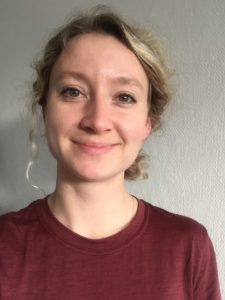by Maria Hansen, Kari Stefansen and May-Len Skilbrei
Recent years have seen significant changes in the perception of what rape is and what victims should do in its aftermath. In Norway, an increasing number of rapes are being reported to the police, many of which are committed by acquaintances and taking place in contexts involving intoxication and where there are serious social risks involved in reporting.

These developments reflect a cultural shift in the Nordics and many other parts of the world. In a relatively short time, rape has gone from being treated as a personal issue to becoming a public matter. In public debate, reporting is emphasised as necessary for confronting the problem of rape and as the right thing for victims to do. This reflects the strong position of criminal justice approaches to rape in the region, also in social movements like feminism. For decades, Nordic feminists have turned to the State, demanding that the capacity of criminal law to protect the sexual autonomy of women be strengthened.
This demand has been heard. The definition of rape is expanded, and punishments are more severe. The rights of victims throughout the criminal justice process have also been strengthened, to ease the burden of court proceedings.
An overlooked side-effect of these developments is that reporting has changed from being an option for some victims to becoming a moral duty for all victims. The “credible” rape victim is now someone vocal and agentic, who seeks psychological help for the trauma and reports the experience to the police. In this cultural context, it is opting out and not reporting that must be explained.

Our article “Non-reporting of sexual violence as action: acts, selves, futures in the making”, sheds light on the interpretative work victims of rape must undertake to justify their choice to not report. The women knew they had been raped, or at least subjected to sexual assault. They also knew that victims are supposed to report rape to the police—for the sake of society and for their own healing. Still, they talked about their own choice to not report as the right thing to do.
The rapes the women recounted happened in the past, when they were younger. In the interviews, they looked back on these experiences from the perspective of the more mature woman. The wrong choice was right because it was made by another, more immature self who does not represent who they are today. The women also recognized that, for their former selves, reporting involved a considerable social risk. For most, the rape was committed by someone they knew and who was part of their social circle.

What they gained from not reporting was also a sense of control over their own narrative, of who they were and how they were seen by others. In the present, they acknowledge that this may have protected them from the social ripples a rape can cause. By not disclosing, the women could move on, instead of being tied to the incident through legal procedures, social stigma, and a potential disruption of their social lives.
The more mature self, the person they had become, could understand these reasonings and the concerns they built on. The women could, therefore, forgive their younger selves who had been foolish and naïve, who took risks, and who did not report—while, at the same time, stating that the right thing to do is to be open about the experience and to report, and thus to contribute to stopping rape. Some of the victims offered that, had it happened to them today, when their priorities and outlooks are different, they would have reported. They thus implied that for the mature, adult woman, non-reporting would indeed be morally wrong.
In the literature, non-reporting is often interpreted to result from the lack of recognition of rape and its harms. We argue that this is too simple. Non-reporting can be interpreted as an active choice—one informed by a nuanced understanding of both risks and benefits of openness and reporting.
Maria Hansen is a PhD-candidate in criminology, at the Center for Gender Studies, at the University of Oslo. Her PhD explores the boundaries between consensual and non-consensual drunken sexual encounters. Email: maria.hansen@stk.uio.no
Kari Stefansen is a sociologist and works as a Research Professor at Norwegian Social Research, Oslo Metropolitan University. She is the project manager of the Domestic Violence Research Programme. She is currently involved in research on the social dynamics of sexual violence among youth and was the co-editor of the book “Rape in the Nordic countries. Continuity and change”. Email: karis@oslomet.no
May-Len Skilbrei is professor of criminology at the University of Oslo where she teaches sexual violence, qualitative methods and criminological theory. Sexual violence is one of her research interests. Skilbrei is currently project manager of the project Medical, legal and lay understandings of physical evidence in rape cases (Evidently Rape). Email: m.l.skilbrei@jus.uio.no
